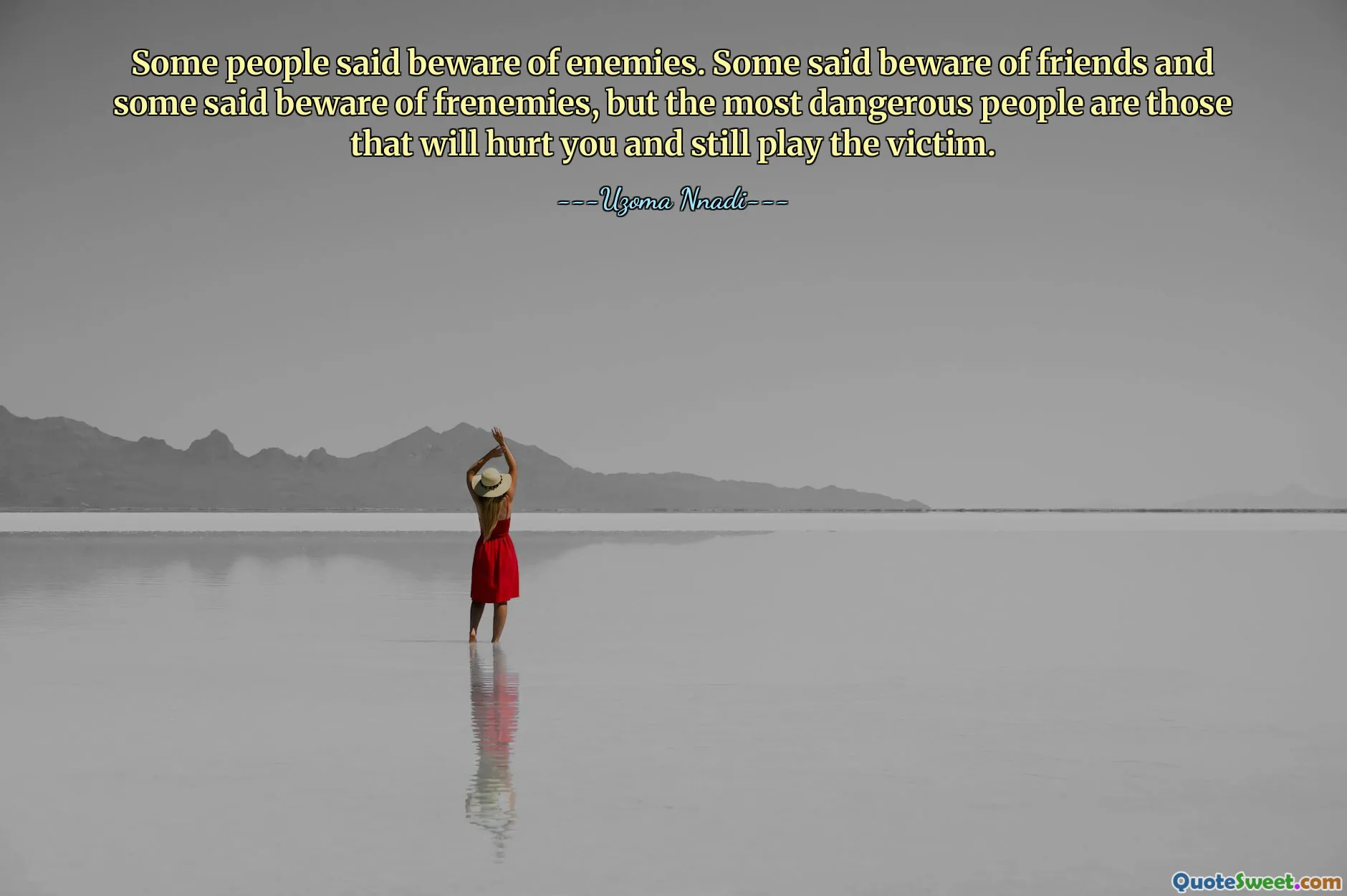
Some people said beware of enemies. Some said beware of friends and some said beware of frenemies, but the most dangerous people are those that will hurt you and still play the victim.
This quote by Uzoma Nnadi eloquently captures an often overlooked but painful truth about human relationships. It highlights the layers of caution we must exercise when interacting with others and the emotional risks involved. While traditional wisdom reminds us to be cautious of enemies, it also warns about friends who may betray our trust, and even 'frenemies'—those who blend friendship with rivalry. However, Nnadi takes this concept further by identifying the most dangerous individuals as those who inflict harm yet refuse to acknowledge their wrongdoing, instead casting themselves as the victim.
The power of this insight lies in its psychological complexity. People who hurt yet play the victim manipulate reality to avoid accountability and evoke sympathy, thereby confusing their victims and often perpetuating cycles of pain and misunderstanding. This dynamic calls for a heightened sense of emotional intelligence, urging us to carefully discern not only actions but also motives and behaviors. It reminds us that toxicity isn't always straightforward; sometimes it disguises itself in vulnerability and helplessness.
Reflecting on this quote encourages deeper self-awareness and caution in our personal and professional relationships. It urges vigilance against manipulative behaviors masked by self-pity and highlights the importance of setting boundaries to preserve our well-being. Recognizing such individuals is essential to protecting our emotional health and fostering genuine connections based on mutual respect and honesty.
Ultimately, Uzoma Nnadi's words provide a significant commentary on trust, betrayal, and emotional survival, compelling us to look beyond superficial appearances when evaluating the people around us.






